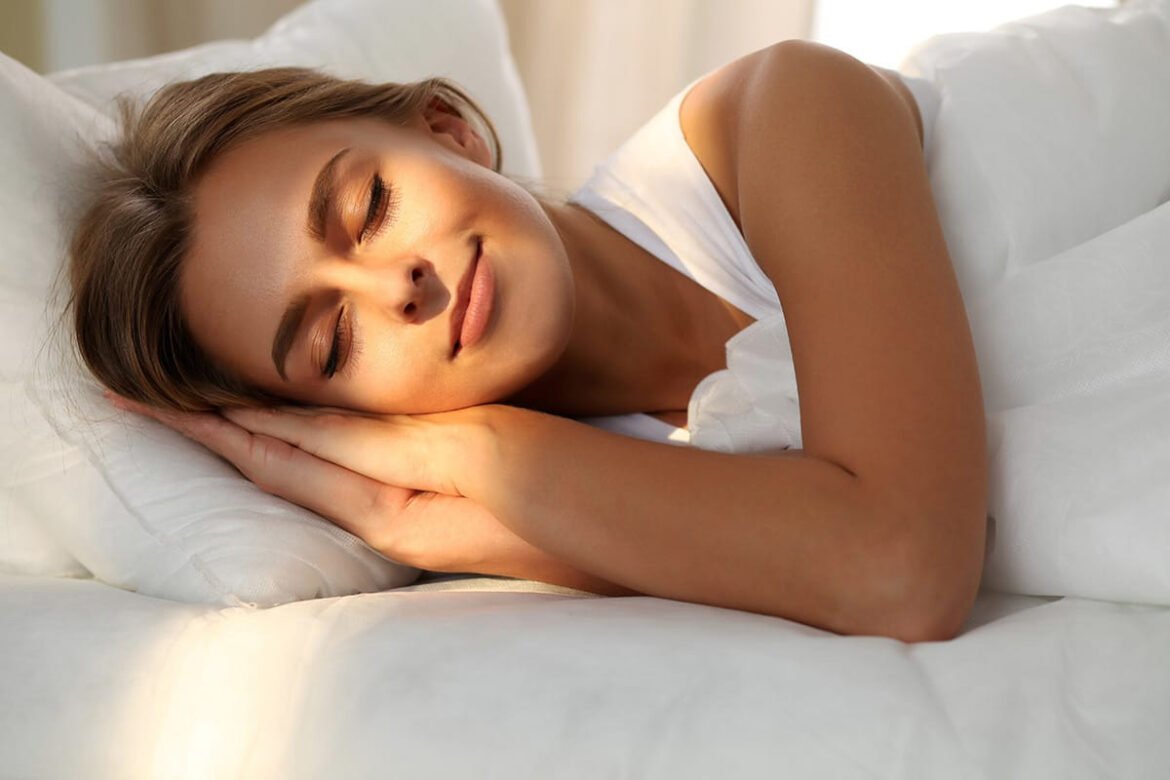Struggling to get a good night’s sleep? You’re not alone. Millions of people worldwide experience sleep issues, whether it’s difficulty falling asleep, staying asleep, or waking up feeling unrested. While prescription sleep medications can help, they often come with side effects and the risk of dependency. Fortunately, science-backed natural sleep aids can help you improve your rest without the drawbacks. Here are six natural sleep aids to consider for a better night’s sleep.
1. Melatonin
Melatonin is a hormone your body naturally produces to regulate sleep-wake cycles. It signals to your brain that it’s time to wind down and prepare for sleep. However, factors like stress, screen time, and irregular schedules can disrupt melatonin production.
How it helps: Studies show that melatonin supplements can reduce the time it takes to fall asleep, especially for those with insomnia or jet lag. A 2013 meta-analysis found that melatonin improved sleep quality and increased total sleep time.
How to use it: Take 1-3 mg of melatonin 30-60 minutes before bedtime. Start with a low dose to avoid grogginess the next day.
2. Valerian Root
Valerian root is an herbal remedy that has been used for centuries to promote relaxation and improve sleep. It’s believed to increase levels of gamma-aminobutyric acid (GABA), a neurotransmitter that helps calm the nervous system.
How it helps: Research suggests that valerian root can improve sleep quality and reduce the time it takes to fall asleep. A 2020 study found that participants who took valerian root reported better sleep and fewer nighttime awakenings.
How to use it: Take 300-600 mg of valerian root extract 30 minutes to 2 hours before bed. Be consistent, as it may take a few weeks to notice its full effects.
3. Magnesium
Magnesium is an essential mineral involved in hundreds of bodily processes, including sleep regulation. It helps activate the parasympathetic nervous system, which is responsible for calming your body and mind.
How it helps: Studies have shown that magnesium deficiency is linked to poor sleep quality. Supplementing with magnesium can improve sleep efficiency, reduce nighttime awakenings, and increase melatonin production.
How to use it: Take 200-400 mg of magnesium glycinate or citrate before bed. Avoid magnesium oxide, as it’s less bioavailable.
4. Chamomile Tea
Chamomile is a gentle, caffeine-free herbal tea known for its calming properties. It contains apigenin, an antioxidant that binds to certain receptors in the brain to promote relaxation and reduce anxiety.
How it helps: A 2016 study found that chamomile extract improved sleep quality in postpartum women. Another study showed that drinking chamomile tea before bed helped participants fall asleep faster and wake up less during the night.
How to use it: Brew a cup of chamomile tea 30-60 minutes before bedtime. Add a teaspoon of honey for added relaxation.
5. Lavender
Lavender is a fragrant herb widely used in aromatherapy for its soothing effects. Its scent has been shown to reduce stress and anxiety, making it easier to fall asleep.
How it helps: A 2015 study found that inhaling lavender essential oil before bed improved sleep quality in college students. Another study showed that lavender aromatherapy reduced insomnia symptoms in older adults.
How to use it: Add a few drops of lavender essential oil to a diffuser or pillow spray. You can also apply diluted lavender oil to your temples or wrists before bed.
6. Tart Cherry Juice
Tart cherries are a natural source of melatonin and contain compounds that may help regulate sleep. They also have anti-inflammatory properties that can support overall health.
How it helps: A 2018 study found that drinking tart cherry juice increased sleep time and improved sleep efficiency in adults with insomnia. Participants also reported feeling more rested in the morning.
How to use it: Drink a small glass (8 ounces) of unsweetened tart cherry juice 1-2 hours before bedtime.
Tips for Maximizing the Benefits of Natural Sleep Aids
- Create a bedtime routine: Consistency is key. Go to bed and wake up at the same time every day, even on weekends.
- Limit screen time: Blue light from phones and computers can disrupt melatonin production. Avoid screens at least an hour before bed.
- Optimize your sleep environment: Keep your bedroom cool, dark, and quiet. Consider using blackout curtains or a white noise machine.
- Avoid caffeine and heavy meals: Both can interfere with your ability to fall asleep. Stick to light snacks if you’re hungry before bed.
Final Thoughts
Improving your sleep doesn’t have to involve prescription medications. These six natural sleep aids—melatonin, valerian root, magnesium, chamomile tea, lavender, and tart cherry juice—are backed by science and can help you achieve better rest. Combine these remedies with healthy sleep habits for the best results. Sweet dreams!







